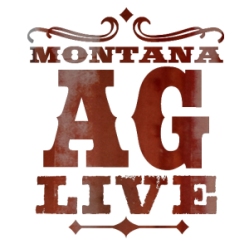2017 Pest Management Tour offers Last Chance Credit Opportunities for Private Pesticide Applicators across Southcentral Montana.
The Montana State University (MSU) Pesticide Education Program is offering the Pest Management Tour for pesticide applicators across southcentral Montana, Private Applicator Training (PAT) District 5, from October 2nd – 6th (Figure 1). Private applicators within PAT district 5 should ensure they have attained 6 private applicator credits prior to the January 1st, 2018 deadline to avoid losing their private certification. Applicators can assess their credit information at https://mtplants.mt.gov/ by selecting “pesticide programs” and “pesticide license search” prior to entering their license number. Applicators can also contact their MSU Extension county office for license information. Private applicators may opt to attend only a morning or afternoon session for 3 private applicator credits; or both for 6 credits. Commercial applicator credits can be viewed on the last page of the 2017 Pest Management Tour agenda at www.pesticides.montana.edu by selecting “Pest Management Tour”.
Speakers will deliver presentations on managing prairie dogs, managing birds, weed management, pulse diseases, pesticide applicator recordkeeping, pesticide drift, herbicide carryover and diagnosing herbicide injury (presentations vary by location). MSU representatives speaking on the tour include Dr. Fabian Menalled (MSU Cropland Weed Specialist), Dr. Jane Mangold (MSU Rangeland Weed Specialist), Dr. Jessica Rupp (MSU Potato, Sugarbeet and Pulse Pathologist), Stephen Vantassel (MDA Vertebrate Pest Specialist), Eric Clanton (MDA District Officer) and Dr. Cecil Tharp (MSU Pesticide Education Specialist). The tour will cover 10 locations in 5 days:
October 2nd
Lewistown, MT: Eagles Club, 124 W Main Street; Pre-register by September 29th with MSU PEP, Amy Bowser at (406)994-5178 or online atwww.pesticides.montana.edu/event.html;
$10 fee & lunch provided; Starts at 8:30 am. th Hobson, MT: Tall Boys Tavern, 122 Central Avenue; Pre-register by September 26 Basin County Extension, Katie Hatlelid at (406)566-2277 ext.104 or email [email protected]; $10 fee & lunch provided; Starts at 8:40 am.
October 3rd
Roundup, MT: Roundup Community Center, 700 3rd Street West; Pre-register by September 27th with Musselshell County Extension, Mat Walter (406)323-2704 or email
[email protected]; $15 fee & lunch provided; Starts at 8:55 am. th Ryegate, MT: Ryegate Firehall, 107 Kemp Street; Pre-register by September 27 Musselshell-Golden Valley County Extension, Mat Walter (406)323-2704 or email [email protected]; $15 fee & lunch provided; Starts at 8:40 am.
October 4th
Billings, MT: Red Lion Inn, 1223 Mullowney Lane; Pre-register by September 29th with MSU PEP, Amy Bowser (406)994-5178 or register online at www.pesticides.montana.edu/event.html; $15 fee & lunch provided; Starts at 8:25 am. th Hardin, MT: Big Horn County Fairgrounds, 118 Sawyer Loop; Pre-register by September 28 with Big Horn County Extension Office, Molly Hammond, (406)665-9770 or email [email protected]; $5 fee & lunch provided; Starts at 8:45 am.
October 5th
Columbus, MT: Stillwater County Fairgrounds Pavilion, 328 North 5th Avenue; Pre-register by September 29th with Stillwater County Extension Office, Lee Schmelzer (406)322-8035 or email
[email protected]; No fee & lunch provided; Starts at 8:45 am. th Joliet, MT: Joliet Community Center, 209 E. Front Avenue; Pre-register by September 29 Carbon County Extension Office, Nikki Bailey (406)962-3522 or email at [email protected]; No fee and lunch provided; Starts at 8:35 am.
October 6th
Big Timber, MT: Sweet Grass County Fairgrounds, 78 Fairgrounds Road; Pre-register by September 29th by contacting Sweet Grass County Extension Office, Marc King (406)580-2556 or email [email protected]; No fee & lunch provided; Starts at 8:35 am.
Harlowton, MT: Kiwanis Youth Center, 202 3rd NE; Pre-register by September 29th by contacting Wheatland County Extension Office, Mandie Reed (406)632-4728 ext. 308 or email [email protected]. $15 fee & lunch provided; Starts at 8:55 am.
FOR FURTHER INFORMATION: See the detailed program agenda online at www.pesticides.montana.edu and select ‘2017 Pest Management Tour’, or contact your local Extension agent for local information. For any other questions contact Cecil Tharp, Pesticide Education Specialist, at the MSU Pesticide Education Program office (406)-994-5067, [email protected].







